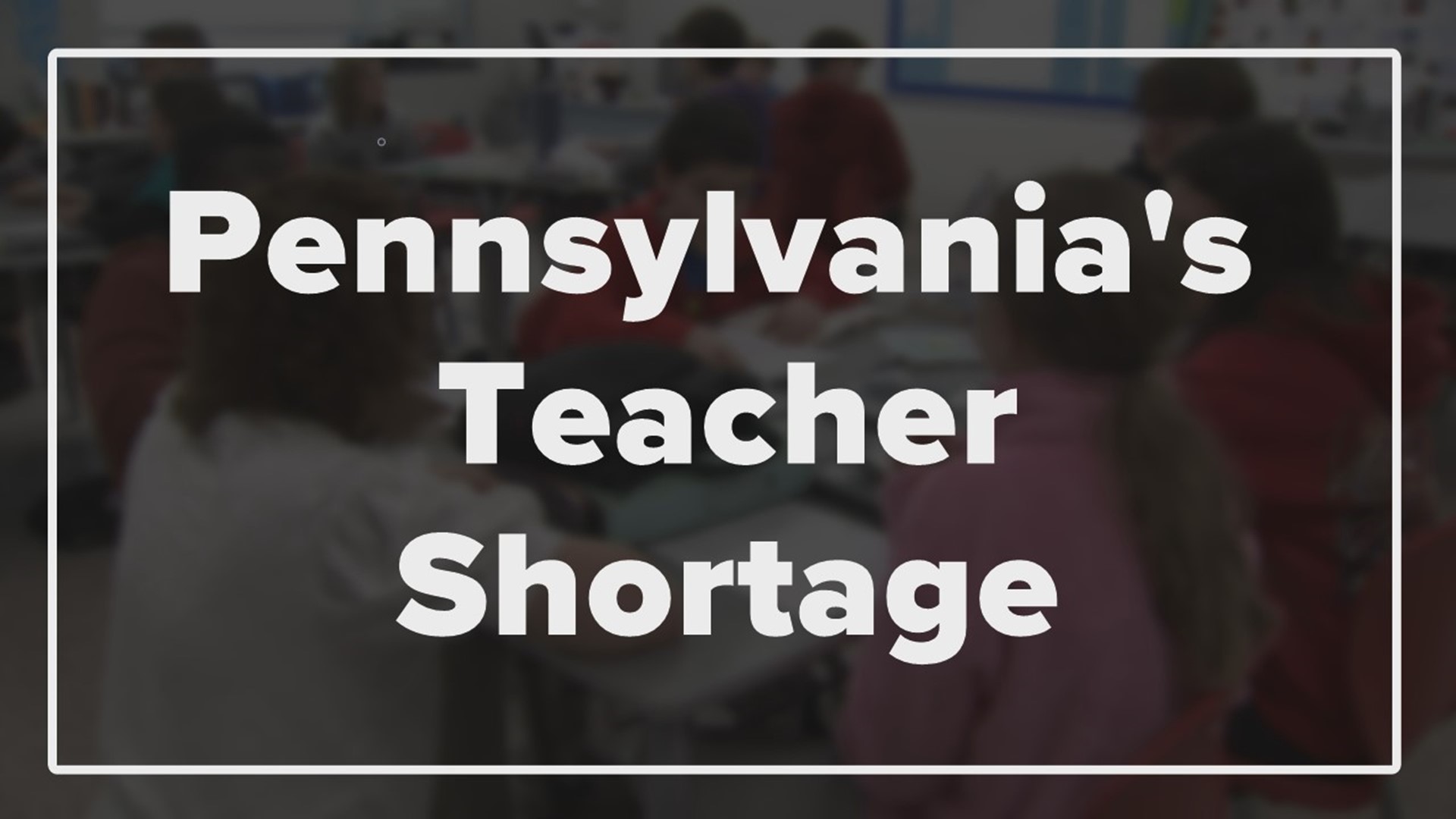HARRISBURG, Pa. — Many Pennsylvania classrooms are missing the one person they need the most, a teacher.
Pages and pages of openings are listed online. Local districts like Dallastown Area in York County have more than a dozen positions available, looking for educators and support staff to enrich the next generation.
“We have a lot of school districts that are grappling from across the state, with having enough teachers having enough staff to fill all the positions that they need, so that we can take care of our kids,” said Aaron Chapin, president of the Pennsylvania State Education Association.
Mifflin County High School Teacher Ashlie Crosson said educators saw the writing on the wall.
“The biggest issue that we need to figure out and we need to address related to funding is our teacher shortage,” said Crosson, Pennsylvania’s teacher of the year. “We all saw it coming and everybody just said, ‘Oh yeah, it happens every once in a while, but it will wrinkle itself out.’ I’m like, it’s not going to wrinkle itself out this time.”
Crosson said the pressures that come with the classroom have never been greater.
“We have real concerns about burnout. We have real concerns about the respect that we receive within our profession,” she said. “It doesn’t really matter what school you go to, you’re going to have teachers who say from a mental health standpoint or a workload standpoint or an expectation standpoint, there are some things that are unsustainable.”
“I met with some Camp Hill school teachers one day, and you had a teacher that was sort of the end of her career, who was saying ‘This is hard, I've watched it change that kids aren't as respectful that teacher the parents are involved in ways that aren't necessarily constructive,’” said Republican State Senator Greg Rothman, who represents parts of Dauphin, Cumberland and Perry Counties.
Rothman is a member of the Basic Education Funding Commission, the legislative body tasked with analyzing the state’s school funding needs every five years.
“We need to go back to looking at teachers as a noble profession,” he said. “You do it because there's a sense of pride. I'm not sure where that stopped with teachers.”
Penn State Professor Ed Fuller said both politicians and the public need to change attitudes if they want the problem to improve.
“We should be admiring these folks, we shouldn’t be calling them names or criticizing them,” Fuller said. “I was a teacher, it’s a really difficult job.”
A difficult job, and many are deciding to leave.
Last year, Fuller helped conduct a study on Pennsylvania’s teacher shortage.
The Penn State Center for Education Evaluation and Policy Analysis found that 9,587 teachers left their jobs during the 2022/2023 school year, a 1.5% increase from the prior year and the largest spike in a decade.

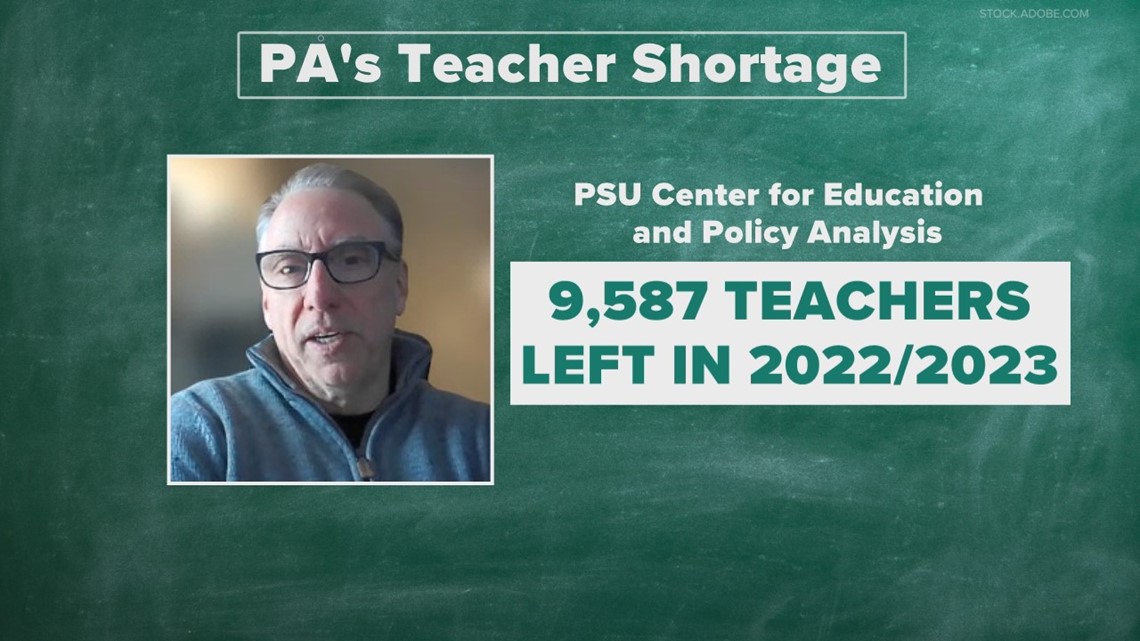
Fuller said it was the biggest exodus on record and it’s hurting students.
“There’s a large number of kids who don’t have access to a well-qualified teacher because the districts just don’t have enough people to hire at the moment,” he added. “Even more disconcerting to me is that these are students in our underfunded districts. There’s lots of kids of color, lots of kids living in poverty.”
Pennsylvania School Boards Association Senior Education Policy Director Andrew Christ said it’s hard to entice professionals in other industries to pursue teaching.
“I think one of the biggest challenges dealing with staffing shortages, is how do we get more people into the field, but in a way that we still have quality educators coming into the classroom?” Christ said. “We are seeing greater areas of need in terms of special education, science, math and technology. So how do we get more of those people out of their current fields and in the classroom?”
That problem makes the pipeline of college students even more valuable to districts with staffing needs, but data shows more students may be deciding to avoid a teaching career even while they’re still in high school.
An SAT survey asks Pennsylvania high schoolers what field they plan to major in.
IN 2009, 11.2% said they were choosing education, but a decade later that number dropped to just 4.5%. That 6.7% decrease was by far the largest drop of all included majors in that time frame.

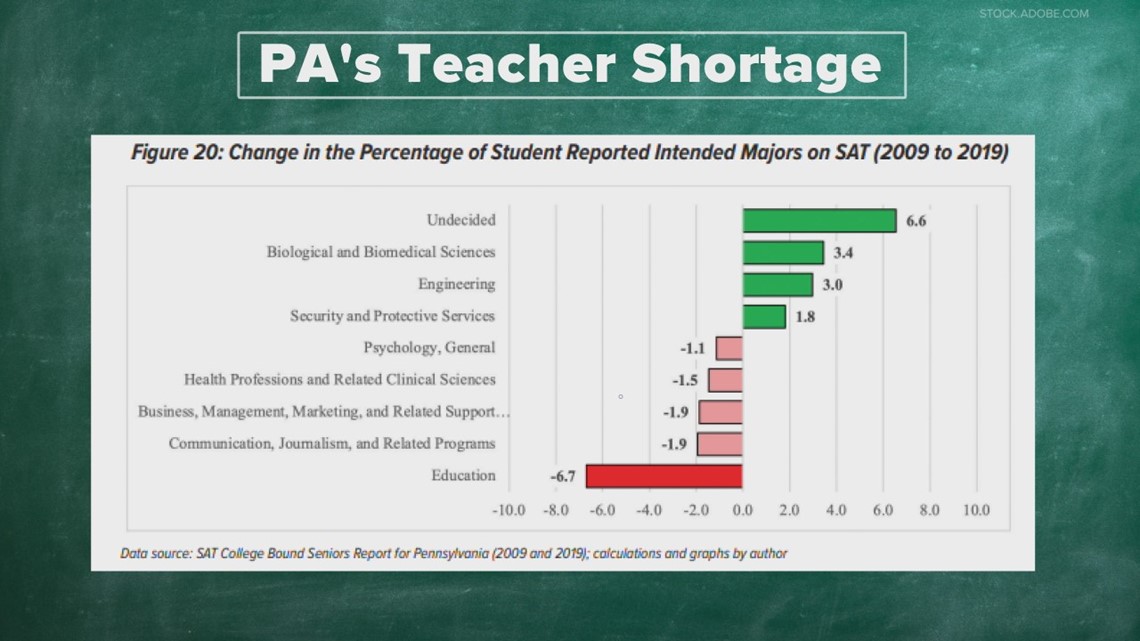
“There just simply aren’t enough teachers right now, coming out of our teacher preparation programs,” Fuller said.
When FOX43 asked why students are not choosing to become teachers, Fuller responded, “One is that it’s really expensive to get a higher education degree in Pennsylvania.”
The most recent survey data from the National Center for Education Statistics backs this up.
Keep in mind that these numbers are from the 2021-2022 school year and all the figures we are about to show you are in-state tuition rates – out-of-state students pay even more.
Students at 4-year public universities in the U.S. paid $21,854 in total expenditures on average; that’s tuition and room and board.
In Pennsylvania, that number is more than $5,000 higher, with $27,336 in total expenditures for public universities, 7th highest in the nation.

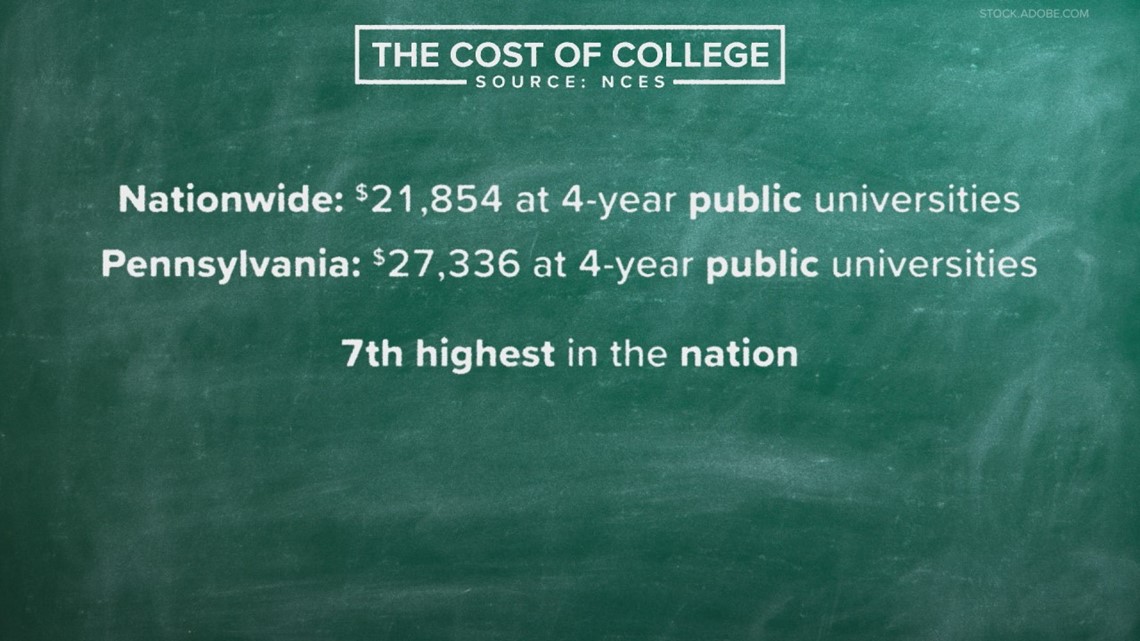
U.S. Students at private 4-year universities paid an average of $47,940 in total costs during this school year.
In Pennsylvania, the number was $60,218 on average, the 8th highest in the country.

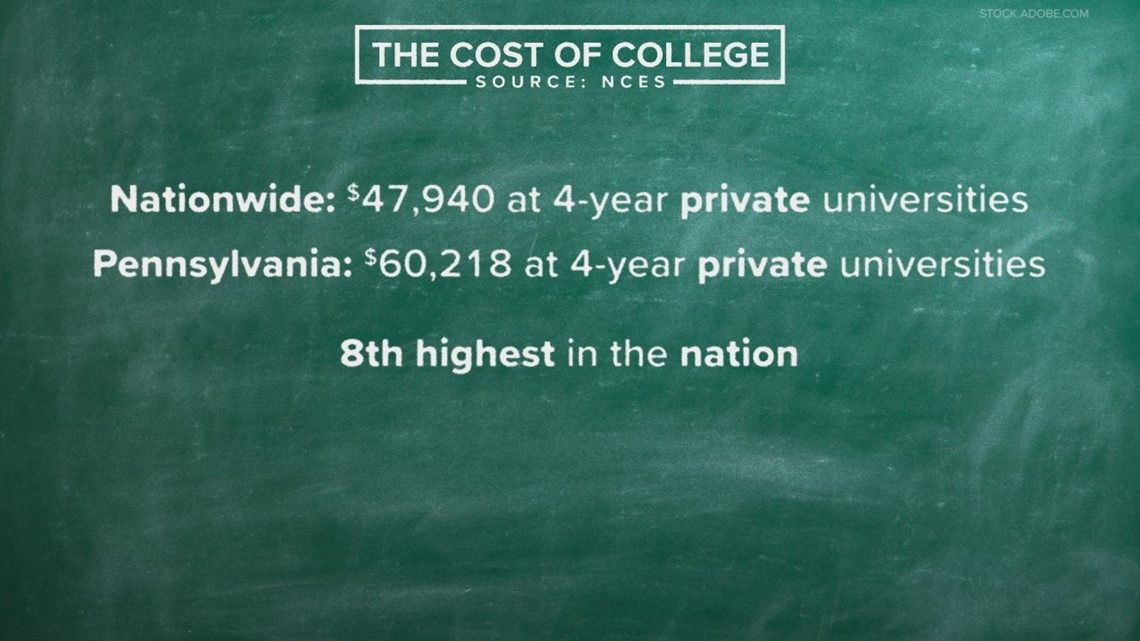
However, Pennsylvania’s future educators are getting a break this year.
Last year’s state budget approved a $10,000 stipend program for student teachers starting this fall, compensating them for what has long been unpaid work.
“I do think that the student teacher stipend has created some positive vibes amongst teachers in Pennsylvania,” Crosson said. “That win is really big for us because it's removing a barrier to becoming a teacher.”
“We would like to see that stipend obviously increase over the years,” Chapin added. “$10,000 does not cover a semester in college.”
Governor Shapiro’s new budget proposal would add $5 million to the student-teacher stipend fund.
Unlike many measures being considered, the program has enjoyed bipartisan support.
While it could help stop the bleeding, Crosson said it doesn’t address the larger problem.
“It's helping our youngest generation of teachers come into the profession, but part of the teacher shortage is because teachers are leaving, it's because of burnout,” she said. “It's because there isn't enough to sustain us within the profession. We need Harrisburg to look at how we retain our teachers. How do we acknowledge and reward their service to our state?”
As budget conversations get underway in Pennsylvania, lawmakers are considering several solutions to address the shortage.
On Monday night, FOX43 will break down the stances from both sides of the aisle and how teacher compensation plays into the equation.

